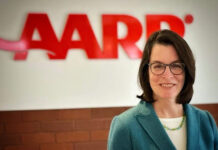What is more utterly confounding than choosing a health insurance plan for a business?
Not much.
Officials from HealthSource RI, the state’s health insurance exchange under the federal Affordable Care Act, are hitting the road with insurance-buying tutorials for bedeviled business managers around Rhode Island.
HSRI has taken its road show of health care information to the offices of Rhode Island chambers of commerce, making presentations this year to the Greater Providence Chamber of Commerce and, last month, to the Greater Newport Chamber of Commerce during a public “ask the expert” gathering.
Not a moment too soon, either. By Jan. 1, all Rhode Island residents without coverage will be charged a penalty, known as an individual mandate, at tax time.
Apart from the penalty, employers want to offer their workers health insurance because they believe it is the right thing to do, or because it can make a business more attractive to job-seekers in the present high-employment economy.
Jonathan Kabak, a Newport businessman who attended the information session in Newport on Nov. 19, showed up with an extra-gnarly situation. He is CEO of the nonprofit Oliver Hazard Perry Rhode Island Inc., which operates a Tall Ship out of Newport and offers trips and education programs in the warm seasons.
‘Purchase of health insurance is one of the most significant decisions we make.’
Lindsay Lang, HealthSource RI acting director
If any of his on-water employees were injured on the job, their medical care would be affected, in part, by the “maintenance and cure” provisions of the federal Jones Act, an extra twist that complicated Kabak’s health insurance search.
Seamen are not entitled to workers’ compensation benefits, and that is where the Jones Act comes in. The act gives seamen who are injured on the job the right to sue their employer for personal-injury damages. Kabak wanted to know how might that situation affect health insurance.
“The problem with small businesses is that we wear too many hats and we don’t have time to do everything,” Kabak said. At the Newport information session, “HealthSource made it easy for me to want to engage with them and to continue to explore the best options.”
Kabak said the company has never yet offered health insurance to its five year-round and 20 or so seasonal workers. The nonprofit is coming out of a busy year that included a suspension of operations from fall 2018 to the start of 2019 due to its shaky financial condition.
By the start of this year, Oliver Hazard Perry Rhode Island managers had decided to shift from long voyages to a mix of multiday, single-day and dockside programs, including educational offerings for secondary school students and underemployed adults, Kabak said.
He wanted to offer health insurance because “it is an important part of [employees] being able to contribute to our company and also because it would help with recruitment,” he said.
Lindsay Lang, acting director of HealthSource RI, has made the informational presentation to the Providence and Newport chambers, and hopes to do more of them. She also goes out to explain HealthSource RI to insurance brokers.
Lang said Rhode Island’s uninsured rate is now 3.7%, the fifth-lowest in the nation for all ages and the third-lowest if children only are tallied. Eighty-two percent, or 25,857 customers, of HealthSource RI receive a federal subsidy, Lang said.
Asked to identify employers’ biggest concern, Lang said, “Price! And price predictability.”
“Purchase of health insurance is one of the most significant decisions we make,” Lang said. “It is complicated. Having somebody who knows the insurance products and who has counseled other businesses is invaluable.”
She said HealthSource RI offers a defined contribution model, in which the employer decides what percentage of all health costs the company will cover, and a full employee choice model, in which the employer chooses a reference plan and employees may choose a “fatter” or “skinnier” version of the plan, depending on their needs.
In both models, HealthSource RI is the intermediary between the employer and the insurance carrier. The agency manages the plan and sends a single bill to the employer.
Erin Donovan-Boyle, executive director of the Greater Newport Chamber of Commerce, initiated the “ask the expert” session. That first meeting will be followed by twice-monthly office hours at the Newport Chamber, where HSRI officials will be on hand to answer questions individually and privately.
Donovan-Boyle said she knew Newport businesspeople needed health insurance advice because her office keeps getting calls for companies asking what health insurance plans the Chamber offered – the answer being “none.”
“Even well before ‘Obamacare,’ health costs are still the second-highest line item for any business, after salaries,” Donovan-Boyle said. “Employers want to offer competitive packages, and they have to balance the needs of employees with their own costs.”
The HealthSource RI staff, she said, “walked us through the process and explained the options.”
J. Daniel Knerr, who is in the sales department of Newport Specialty Foods Inc., attended the “ask the expert” session with HealthSource RI. He said the food wholesaler, which employs about 25 people, offered health insurance for the first time this year, and is now shopping for a plan for next year.
“We want to see what else is out there,” Knerr said. “We are looking for a better rate or more coverage.”













